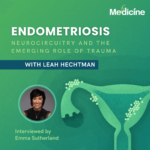The most important strategy to normalise blood pressure is through one’s diet. Dietary factors include obesity; high sodium-to-potassium ratio; low-fibre, high-sugar diet; high saturated fat and low omega-3 fatty acid intake; and a diet low in calcium, magnesium, and vitamin C. Excessive caffeine can also increase blood pressure considerably.
The dietary factor that has received the greatest attention is salt intake. Between 40% and 60% of people with high blood pressure are salt sensitive. Research suggests that one needs to reduce their salt intake to less than 2g per day. Whilst that sounds easy, take a look at the ingredient panel on your food products and you will soon realise that just about everything has Sodium in it! Obviously it’s important to reduce the salt you add to your food, however, it is also important to consider other food sources. Sodium is found naturally in some foods and is also added to most packaged foods (noodles, biscuits, crackers and sauces) and fresh foods (breads, cakes and pastas).
Lifestyle strategies such as quitting smoking, exercise and weight management can all help to reduce blood pressure. Some individuals will experience an increase in blood pressure when they feel stressed or anxious. If this is the case, relaxation techniques and stress management is important.
Nutritional supplements of Magnesium, Vitamin E, Essential Fatty Acids and Co Enzyme Q10 have all be shown to be successful in reducing blood pressure. It is very dose dependant so it is important to review thoroughly with a qualified health professional.


